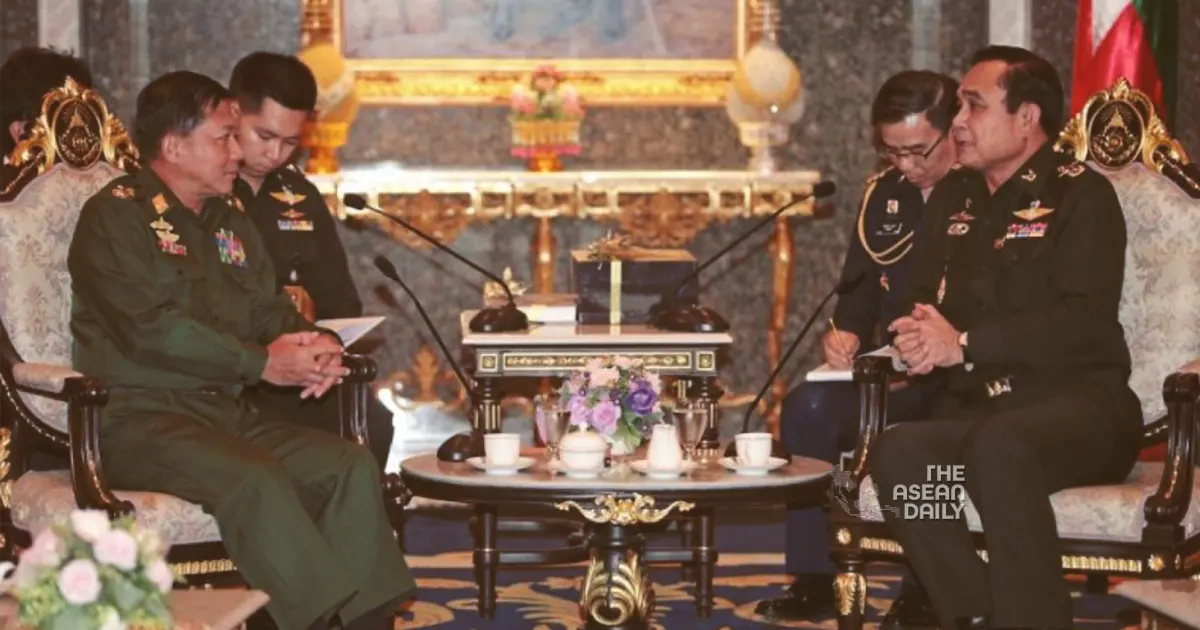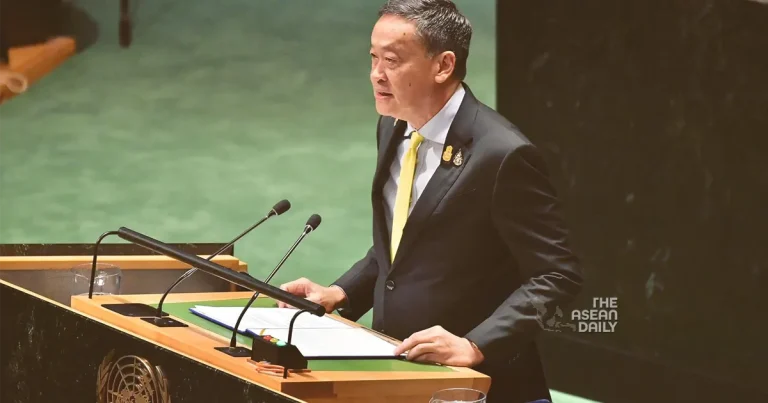29-9-2023 (BANGKOK) A month after assuming the role of Thailand’s prime minister, Srettha Thavisin represented his country on the global stage at the United Nations General Assembly in New York. With ambitious plans to transform Thailand into a Southeast Asian economic powerhouse, Thavisin aimed to secure high-stakes deals with industry giants like Tesla, Google, and Microsoft while engaging with US business leaders. However, as Thailand transitions from semi-autocracy to a more inclusive political system, Thavisin faces the daunting task of addressing foreign policy challenges, particularly concerning Myanmar.
Thavisin, a prominent real estate tycoon, exuded confidence during his New York visit, symbolizing his transition from the glamorous high-end property sector to the face of Thailand’s evolving political landscape. While the government’s priority lies in rejuvenating the economy, taking a stand on various foreign policy issues, including the situation in Myanmar, becomes inevitable. Thavisin must confront the legacy left by his predecessor, Prayut Chan-o-cha, whose close ties with Myanmar’s junta leader, Min Aung Hlaing, strained Thailand’s reputation within the Association of Southeast Asian Nations (ASEAN) and beyond.
In July 2022, Thavisin openly criticized Prayut for allowing Myanmar to violate Thailand’s sovereignty when a jet entered Thai airspace while attacking ethnic minority rebels. Thailand did not officially condemn Myanmar for this act, and Prayut dismissed the incident. The close relationship between Prayut and Min Aung Hlaing is well known, with the latter seeking ties with Thai elites for years. Furthermore, investigations by the Thai opposition party Move Forward revealed business connections between Thai Senator Upakit Pachariyangkun and Tun Min Latt, a Myanmar businessman under US sanctions, further complicating matters.

Thailand’s top diplomat, Don Pramudwinai, also contributed to the complex ties between Thailand and Myanmar. ASEAN’s informal talks in June, hosted by Thailand, were boycotted by Malaysia, Singapore, and Indonesia, who insisted on Myanmar’s adherence to ASEAN’s five-point consensus. This consensus includes an immediate end to violence and the facilitation of humanitarian aid to Myanmar’s citizens, but its implementation has proven unsuccessful. Pramudwinai’s meeting with the imprisoned former Myanmar leader, Aung San Suu Kyi, in July was seen as an attempt to overshadow Indonesia’s “quiet diplomacy” approach in Myanmar, as Indonesia held the ASEAN chairmanship at the time.
Thailand also maintains a significant economic presence in Myanmar through companies like PTT Oil and Retail Business PCL (OR), a subsidiary of the energy conglomerate PTT, in which the Thai government holds a majority stake. PTT OR’s joint venture, Brighter Energy, possesses a 35% share in Myanmar’s petroleum industry. In response to human rights violations in Myanmar, Norway’s sovereign wealth fund removed PTT and OR from its equity portfolio in December 2022, prompting PTT to clarify its stance on Myanmar.
Within Thailand, opposition MP Kannavee Suebsang raised concerns in parliament about reports of heavily armed Myanmar soldiers crossing the border into Thailand’s Tak province. Suebsang suggested that allowing such incursions could be interpreted as tacit approval by the Thai military. The relationship between the Thai military and the Tatmadaw (Myanmar’s military) is intricate, with the Thai military arguing that a close collaboration with Myanmar is crucial for national security, given the unrest along their shared border.
Since February 2021, there have been reports of Thai authorities pushing back refugees fleeing the conflict in Myanmar. However, Thai authorities have also provided assistance to thousands of refugees in border areas. According to the UN Refugee Agency, over 40,000 Myanmar citizens sought temporary safety in Thailand between February 2021 and June 2023, with some groups returning to Myanmar after the fighting subsided.
The Thavisin government’s stance towards Myanmar may differ from its predecessor’s, but the ongoing atrocities in Myanmar continue to raise concerns about ASEAN’s unity and Thailand’s role within the organization.




